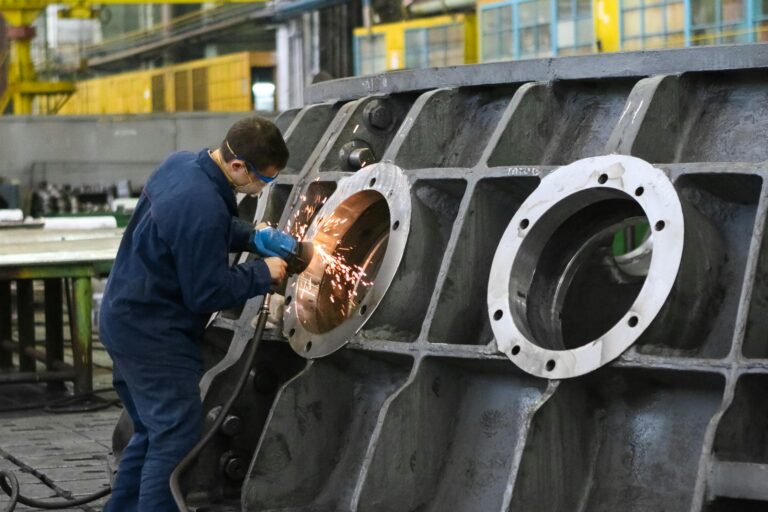Work and Earn $25/hour as an Assembly Line Worker in Canada
Assembly line workers are an integral part of manufacturing, packaging, and production industries in Canada.
With the opportunity to earn up to $25/hour or more, this type of work offers stability and a decent wage for individuals seeking employment without necessarily requiring advanced education or extensive experience.
Results
#1. What is your primary reason for considering a marriage visa?
#2. Do you know which documents are required for a marriage visa application?
#3. How soon are you planning to apply for a marriage visa?
#4. Are you aware of the benefits a marriage visa provides?
#5. Which challenge do you think is the hardest part of applying for a marriage visa?
#6. What support would be most helpful to you during the application process?
In this article, we will explore the duties, required skills, potential earnings, and benefits of working as an assembly line worker in Canada, focusing on how you can earn $25 an hour.
Understanding the Role of an Assembly Line Worker
An assembly line worker is responsible for performing specific tasks in a production line environment, where products or components are assembled systematically.
This could involve tasks like assembling parts, testing products, packaging goods, or managing machine operations. The role can vary based on the type of industry, but all assembly line workers must maintain efficiency, meet production targets, and ensure quality control.
Typical Duties of an Assembly Line Worker
Assembly line workers usually perform the following tasks:
Assembly: Putting together parts or components in the correct order.
Quality control: Inspecting products for defects and ensuring they meet the required standards.
Packaging: Wrapping, boxing, or labeling products for shipment.
Machine operation: Operating automated machines or tools used in assembly.
Maintenance: Performing basic maintenance on machines or assembly equipment to ensure smooth operations.
Safety adherence: Following strict safety protocols to prevent accidents in a high-paced environment.
The skills required vary depending on the type of assembly, but most positions need attention to detail, manual dexterity, the ability to follow instructions, and strong time management skills.
How Much Do Assembly Line Workers Make in Canada?
Average Wage Range for Assembly Line Workers
Assembly line worker wages can vary across different industries and provinces in Canada. On average, assembly line workers earn between $17 and $25 per hour, depending on their level of experience, the complexity of the work, and the specific region they are employed in.
Entry-level: For those just starting, hourly wages typically range from $17 to $19. These positions are often found in sectors such as food production, simple manufacturing, or packaging.
Experienced workers: With a few years of experience or specialized skills, assembly line workers can earn $20 to $25 per hour. Positions in industries like automotive manufacturing, electronics, and machinery tend to pay higher rates.
Highly specialized roles: Some sectors, such as electronics or aerospace, may offer $25 or more per hour for highly skilled assembly workers who deal with complex systems or precision machinery.
Factors That Impact Pay
Industry: Assembly line workers in industries like automotive, electronics, or aerospace manufacturing tend to earn higher wages compared to those working in food production or basic manufacturing jobs. The complexity of tasks and required skills significantly affects pay.
Experience: Workers with more experience or those with specialized training can command higher wages. In contrast, entry-level positions may have lower pay rates.
Region: Pay rates differ between provinces and cities due to the cost of living, demand for workers, and regional industry focus.
Unionization: Some workers in unionized industries receive higher pay due to collective bargaining agreements. Unionized assembly line workers typically enjoy better wages, benefits, and job security.
Highest Paying Jobs in Canada
Job Title Average Salary (CAD)
Truck Driver $70k/Year
Barber $50/Hour
Tailor $40/Hour
Mechanic $7k/Month
Earning Potential by Region
Canada is a vast country with regional variations in pay. For example, assembly line workers in larger cities with high living costs may earn higher wages to keep up with the cost of living, while in smaller cities or rural areas, the wages may be lower.
Table: Average Earnings of Assembly Line Workers by Province
Province Average Hourly Wage (CAD)
Ontario $25
Quebec $22
British columbia $23
Alberta $25
Nova Scotia $20
Manitoba $21
Benefits of Working as an Assembly Line Worker
1. Job Stability
Manufacturing industries are a cornerstone of the Canadian economy. Even during economic downturns, assembly line workers often enjoy job security, especially in industries that produce essential goods.
2. Low Barrier to Entry
Assembly line jobs typically do not require advanced degrees, making them an attractive option for people with high school diplomas or those seeking a career change. Employers provide on-the-job training, which means you can start working and earning quickly.
3. Union Benefits
Many assembly line workers in Canada are represented by unions, which can negotiate for higher wages, benefits, and better working conditions. Unionized workers often have access to healthcare, retirement plans, and paid leave.
4. Opportunities for Overtime
Many assembly line positions offer the possibility of overtime pay, which can significantly increase a worker’s total earnings. Overtime pay is usually calculated at a higher hourly rate, often 1.5 times the regular hourly wage.
5. Room for Advancement
Experienced assembly line workers can move into supervisory or managerial roles with additional training. Some even transition into quality control, logistics, or machine maintenance positions, all of which come with higher pay.
FAQs on $25/Hour Assembly Worker Jobs in Canada
Who is an assembly line worker?
Assembly line workers are responsible for assembling parts or products in a factory setting, often as part of a production process.
Do assembly line workers need prior experience?
While experience can be beneficial, many entry-level assembly line jobs do not require prior experience. On-the-job training is typically provided, especially in industries like food processing and general manufacturing.
Are there age restrictions for this job?
Applicants usually need to be at least 18 years old, though some provinces may allow younger individuals under certain conditions.
Are there any special skills required?
Basic skills in math, manual dexterity, and attention to detail are essential. Workers in more specialized fields like electronics may need additional technical knowledge.
How can I increase my earning potential as an assembly line worker?
To increase earning potential, you can gain experience in specialized industries, such as automotive or electronics, where wages are higher. Seeking union representation and advancing to supervisory roles also increases earning potential.
What are the working hours for assembly line workers?
Assembly line workers often work shifts, which can include early mornings, nights, weekends, and holidays. The number of hours worked can vary depending on the industry and employer.
Do assembly line workers get benefits?
Yes, many assembly line workers receive benefits, especially if they work in unionized environments. Benefits can include healthcare, paid leave, and retirement plans.
What industries employ assembly line workers in Canada?
Assembly line workers are employed across various industries, including:
- Automotive manufacturing: Producing vehicles and automotive parts.
- Electronics: Assembling electronic components or devices.
- Food and beverage: Packaging and processing food items.
- Aerospace: Manufacturing airplane components.
- Pharmaceuticals: Assembling and packaging medications.
- Furniture: Producing and assembling furniture.
Are assembly line jobs physically demanding?
Yes, many assembly line jobs require physical effort, such as standing for long periods, repetitive tasks, lifting materials, or working in high-paced environments. Workers must adhere to safety guidelines to prevent strain or injuries.
What is the job outlook for assembly line workers in Canada?
The demand for assembly line workers remains stable, especially in sectors like food processing and automotive manufacturing.
However, automation and robotics may reduce the demand for certain roles, emphasizing the importance of acquiring skills in machine operation or maintenance.
Can assembly line workers work part-time?
Yes, part-time positions are available in some industries, particularly in food processing and packaging. However, full-time positions are more common due to prouduction schedules and labor demands.
What kind of training is required for assembly line jobs?
Most entry-level positions provide on-the-job training. For specialized roles, certifications in machinery operation, electrical systems, or quality assurance may be required.
Are there any safety risks in assembly line jobs?
Assembly line work can pose safety risks, such as injuries from repetitive motions, heavy lifting, or working with machinery. Employers provide safety training, and workers must follow strict guidelines, wear protective gear, and report hazards promptly.
What is the typical career progression for an assembly line worker?
Many workers advance to roles such as:
- Team leader or supervisor: Overseeing a group of workers.
- Quality assurance specialist: Ensuring product quality meets standards.
- Machine operator: Operating and maintaining specialized machinery.
- Production manager: Managing production processes.
How can I apply for assembly line jobs in Canada?
You can apply through online job portals, company websites, or recruitment agencies specializing in manufacturing roles.
Do I need a work visa to be eligible for this job?
Yes, unless you are a Canadian citizen or permanent resident. Employers may sponsor work permits for international candidates.
Wrapping Up
Working as an assembly line worker in Canada offers a reliable income and the chance to build a stable career without the need for advanced qualifications.
With an earning potential of up to $25 per hour, the role provides opportunities for growth, especially in specialized sectors like automotive or electronics manufacturing.
Whether you’re just starting your career or looking to transition into a different field, assembly line jobs provide a great option for earning a steady paycheck. With job stability, union benefits, and ample opportunities for overtime, becoming an assembly line worker in Canada can lead to a rewarding career path.
By considering your preferred industry and region, you can maximize your earnings and potentially achieve even higher wages as you gain experience.











